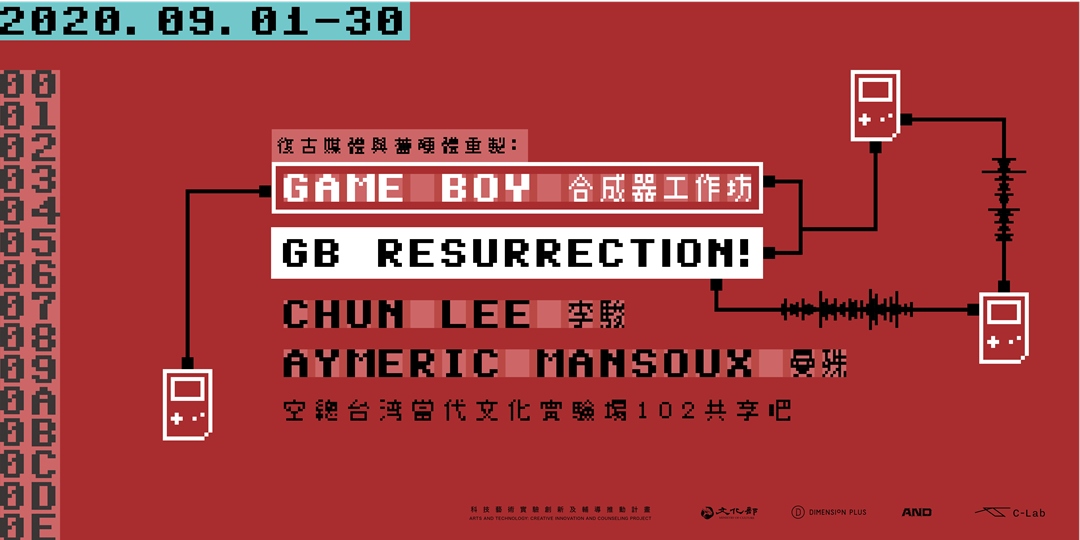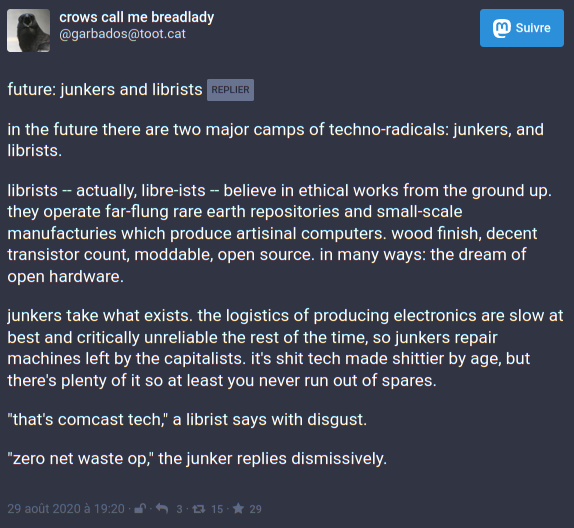Game Boy Resurrection

Synopsis

In an age of climate crisis and planetary resource exhaustion, the need to shift from the eternal growth promise of linear economy, to the more sustainable approaches, is becoming urgent. Specifically, in the context of technological progress, it is obvious that much of the innovation that is being marketed and promoted by tech companies solely exists to artificially maintain the dominant linear economy infrastructures and commercial networks already in place.
It would not come to mind that composing contemporary music on a century old piano is a retro or nostalgic exercise. As it turns out, a growing number of artists are also arguing that making use of a 30 or 40 years old 8bit or 16bit consumer computer chip for the creation of new performances, installations, works, is neither retro or nostalgic. These components are computational devices in their own right, instruments waiting for new compositions and preparation. Moreover, due to their very medium, these aesthetics cannot escape discussions on global capitalism and climate crisis, and these community of practices are often overlapping, if not aligned, with other groups involved into repair culture, circularity, free culture and free software, (post-)open source software and hardware, sustainability, solar punk and DIY subcultures. They ultimately created a material tech practice informed by degrowth, in order to engage with tech criticism through making. As a result, making use of obsolete technology and owning it in such a way that is freeing and liberating, can be a very empowering experience, and help us envision alternative permacomputationial futures.
Next to that, learning to make use of something that is 30 years old in the world of consumer electronics can be a fascinating experience. Technically, it brings us back to a time where things were almost “mechanical”, in the sense that all the working parts are in front of you and accessible. You can touch, fix, replace and enhance them, as long as you have the patience to explore and experiment with all the options. Of course, working with older technology also teaches us to be mindful of imperfections, finding workarounds, and most of all accepting limitations.
These are the core concepts to keep in mind in this workshop, where we will see how the original Game Boy can be resurrected and used to make music. We will see how best to evaluate a given Game Boy, so to determine ways to make the most out of it. Then we will see what modifications and fixes are necessary to bring it up to date. We will lately learn about the software which will enable us to make music on it.
Whilst several generations of Game Boys are available, and can all be modified. We have decided to use the original (DMG-01) version in this workshop for the following reasons. First, well, it is the “original” Game Boy. It is the most iconic of them all, the grey brick! Also, it being the first model, the design is most straight forward, and extensively understood because of this. The internals of the DMG-01 can be easily accessed which make modifications relatively easy. Moreover, it remained in production for a very long time, totaling over 100 million units. This means, in theory, it should not be too hard to come by units in good conditions, or for parts, making it a sustainable platform for homebrew software and art practices. Lastly, at least two thorough empirical research and experiments in the past decades have suggested that DMG-01 is one of the Game Boy that produces a better sound, compared to later iterations.
Methodology
There are two main components to this workshop. First, the hardware repairing and modification. Second, the use of software for music making on a Game Boy. While the GB is one of the platform that has been the most extensively documented online, it can be daunting for a beginner to navigate through all this information. We have designed the workshop to give you an idea of the potential of GB music making, and give you enough information to get started with your own journey and get acquainted with the different communities of practice that revolve around GB hacking.
In the first part of the workshop, the main goal is to get familiar with the hardware. This means to disassemble and identify parts, then to spot potential reasons for faults in a given unit. We will also be carrying out modifications to the hardware, so that it becomes easier to use in the present day setting. Next to adding functionality (backlight) we will also look into improving existing circuitry (audio output). Once the hardware is ready for use, the second part of the workshop will mostly be based on Little Sound DJ (LSDJ), a tracker based music sequencer and synthesis engine. We will also be looking into making one's own ROM, so a custom noise making cartridge can be made.
Workshop Outline
Game Boy Modding
Before starting to make use of the GB, we first need to prepare it a bit. Said differently, we will make some hardware modifications (also known as mods) to make it slightly more useful and possibly correct some defects. This is also an opportunity to get familiar with the hardware itself.
- Game Boy Types: not all GB are build the same!
- Disassembling a Game Boy: how to open it, and what are the different import parts.
- Cleaning and Improving the Appearance of Old Equipment: If your GB is really looking like crap, here are some tips :)
- Fixing Dead_Pixel Lines on a GB: if your GB has dead pixels, maybe this can be fixed!
- Game Boy Pro sound mods: improve the sound output of the GB Classic
- Backlit screen for the Game Boy: how to add an LED backlight to the GB's LCD
Making Noise
Now that we have a GB in better shape, it's time to make something with it. In this second part of the workshop, we will offer essentially two options: learn how to use LSDJ, or learn how to make your own small audio software for the GB. You can of course do both if you're up for it! Finally we will also quickly cover the possibility to hook several GB together, regardless of which option you chose, so as to sync several devices together.
- Option 1: Getting started with LSDJ: learn how to use Little Sound Dj, the most used chiptune tracker for the GB TODO
- Option 2: Simple Bytebeat GB ROM: write your first C program to make the GB go BRRR TODO
- Game Boy Sync: several options are discussed on this page to sync several GB together TODO
Further reading and resources
- chipmusic.org - online community, forum and music sharing platform, for chiptune related music and modding
- Gameboy Development Forum - Discussion about software development for the GB and GBC
- Gameboy Development Wiki - Community maintained wiki about the Game Boy's Z80-like CPU, its hardware, tools for software development
- Pan Docs - Extensive reference document about the inner workings of the GB and GBC
- Game Boy sound comparison - massive update to the original effort from Herbert Weixelbaum to compare the sound of different Nintendo handheld devices
- The Ultimate Game Boy Talk - very dense and thorough technical overview of the GB